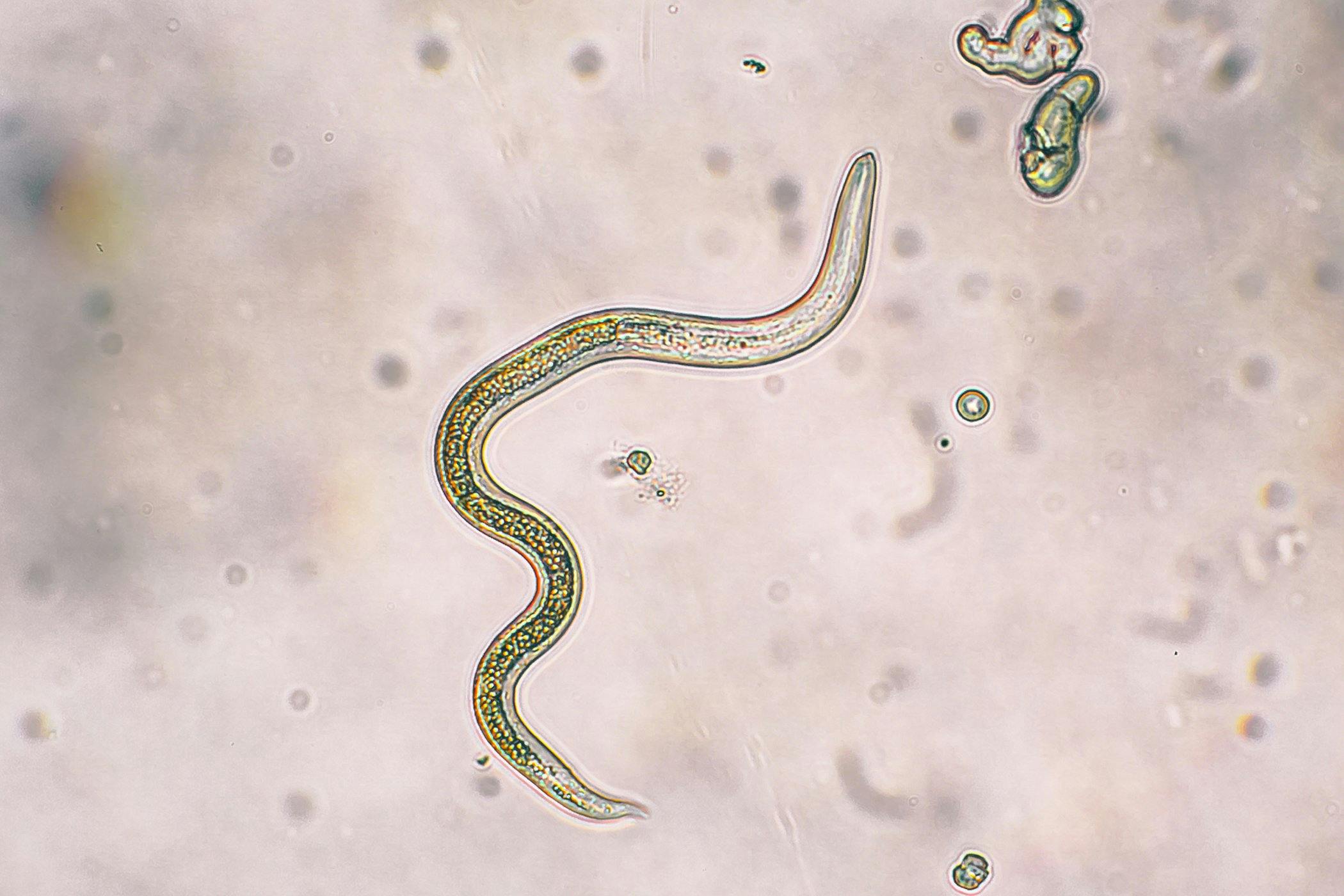Small white worms in dog poop are a sign of an intestinal parasite infestation.
Identifying The Culprits
Small white worms found in dog poop can be unsettling, but identifying the culprits is essential. Differentiating between types of worms is crucial in determining the best course of action. These worms share common characteristics, such as their small size and white appearance.
They may vary in size, ranging from a few millimeters to a few inches long. Observing their movements and behavior can also provide valuable insights. Some worms may be wriggling, while others may remain still. Understanding these factors can help pet owners seek appropriate treatment and prevent the worms from spreading.
Regular check-ups with a veterinarian and proper hygiene practices are vital in keeping our furry friends healthy and worm-free.
Parasitic Worms Found In Dog Poop
Parasitic worms found in dog poop are a common concern for pet owners. One type of worm that may be present is tapeworms. The life cycle and transmission of tapeworms involve ingestion of flea larvae or infected animals. Symptoms include weight loss, vomiting, and itching around the anus.
It’s important to note that tapeworms can also infect humans. Treatment often involves deworming medication and prevention includes regular flea control. Another type of worm that may be found is roundworms. Roundworms can be transmitted through contact with contaminated soil or ingestion of infected animals.
Symptoms include a pot-bellied appearance, diarrhea, and poor growth. Proper treatment and prevention are important to ensure the health of both pets and humans. Hookworms are another concern, with life cycle and transmission occurring through direct skin contact or ingestion of larvae.
Symptoms include anemia, diarrhea, and weight loss. Treatment and prevention strategies should be implemented to keep both dogs and humans safe.
Non-Parasitic Worms Found In Dog Poop
Non-parasitic small white worms are often found in dog poop, resembling maggots. These worms, known as fly larvae, have their own life cycle and habits. They can be a result of various causes, such as the presence of decomposing organic matter in the feces.
Prevention methods include prompt disposal of dog waste and keeping the environment clean. Fly larvae typically go through four stages of development – egg, larva, pupa, and adult fly. Understanding their life cycle helps in identifying the causes and ways to prevent their appearance.
Regular cleaning of dog poop and maintaining good hygiene practices are essential to minimize the chances of these worms appearing. By following proper waste management techniques, pet owners can ensure the elimination of these non-parasitic worms from their dog’s feces.

Credit: wagwalking.com
Other Possible Explanations For Small White Worms
Small white worms in dog poop can be caused by various factors. One possible explanation is undigested food particles present in the feces. This can occur if the dog has eaten something that their digestive system couldn’t fully break down.
Another reason could be the presence of rice-like segments, which are tapeworms shedding their eggs. These segments can often be seen in the dog’s poop and resemble small grains of rice. Additionally, cocoon-like structures of insects may also be found in the feces, indicating the presence of parasites such as fleas or flies.
It’s important to monitor your dog’s health and consult a veterinarian if you notice these worms in their poop, as they may require professional treatment to prevent any further complications.
Ensuring Your Dog’S Health And Hygiene
Small white worms in dog poop can be a sign of intestinal parasites. Regular deworming schedules are crucial to ensuring your dog’s health and hygiene. It is important to maintain proper sanitation and waste disposal to prevent the spread of these worms.
If you notice such worms in your dog’s poop, it is essential to consult with a veterinarian for accurate diagnosis and appropriate treatment. By following recommended deworming protocols and practicing good hygiene, you can protect your dog and reduce the risk of intestinal worms.
Taking proactive measures and seeking professional advice can help keep your furry friend healthy and happy.
Conclusion
To conclude, if you notice small white worms in your dog’s poop, it is crucial to take immediate action. These worms may indicate a parasitic infestation in your furry friend’s digestive system. Understanding the different types of worms and their characteristics can help you identify the specific parasite and seek appropriate treatment from a veterinarian.
Remember, prevention is key. Regular deworming of your dog is essential to ensure their overall health and well-being. Alongside professional intervention, maintaining a clean environment and practicing good hygiene habits can go a long way in preventing worm infestations. By staying vigilant and proactive, you can protect your beloved companion from the potential harm caused by these pesky parasites.
So, keep a close eye on your dog’s poop and take swift action if you come across any small white worms. Your dog will thank you for it.
